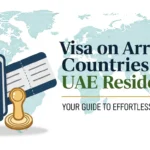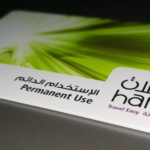Managing payroll in the United Arab Emirates is vastly different from cutting cheques in other states. Businesses here operate under a sophisticated regulatory framework that prioritises employee welfare and transparency. Since July 2009, every private‑sector employer (including free‑zone companies) has been required to register with the Wage Protection System (WPS), an electronic salary‑transfer platform jointly developed by the Ministry of Human Resources and Emiratisation (MOHRE) and the UAE’s Central Bank.
WPS obligates employers to pay salaries through accredited banks or financial institutions and creates a verified trail of payments to protect workers and employers alike. Non‑compliance is not tolerated; penalties range from fines of AED 5,000 per unpaid employee to bans on new work permits for repeat violations.
Yet payroll compliance is only one part of the story. A good payroll services in dubai must calculate basic salaries correctly, allowances, overtime, bonuses, statutory deductions, social security contributions for UAE and GCC nationals and end‑of‑service gratuity. Employers must issue salary slips and maintain records that stand up to scrutiny by auditors or the MOHRE.
With evolving labour laws, corporate tax, VAT and data‑protection regulations, even seasoned entrepreneurs can feel overwhelmed. In this guide we explore why comprehensive payroll support matters, how to stay compliant, and how to choose a partner who can ease your burden. We’ll also introduce some of the leading payroll firms in Dubai
Understanding Payroll Obligations in Dubai
The Wage Protection System (WPS)
The WPS is at the heart of the UAE’s payroll regime. It requires all private sector companies, including free‑zone entities, to pay employees electronically via approved banks or money‑exchange houses. The system ensures wages are honoured on time and provides a transparent record of payments. Employers submit a Salary Information File (SIF) each month with details of every employee’s wage, allowances and deductions. MOHRE and the Central Bank review the file, verify employee data and authorise payments. If any names or ID numbers don’t match official records, the SIF is rejected.
The benefits of WPS are tangible. Workers receive timely salaries and clear evidence of transactions. Employers gain digitised records, legal protection against disputes and peace of mind knowing they’ve met labour‑law obligations. But the system is unforgiving of errors: failure to pay even one employee on time triggers penalties that can jeopardise operations. This is why accurate data management and regulatory knowledge are critical.
Labour‑law requirements
In addition to WPS, payroll must comply with the UAE Labour Law, which defines minimum notice periods, overtime rules, annual leave pay, sick‑leave entitlements and end‑of‑service gratuity. Employers must calculate gratuity based on an employee’s last basic salary and years of service. National insurance contributions are compulsory for UAE and GCC nationals; these include monthly pension deductions that must be paid to the General Pension and Social Security Authority. Employee benefits such as housing, transportation or education allowances should be documented in the contract and reported through the SIF. All payroll records must be retained for at least five years and may be inspected during audits.
Corporate tax and VAT implications
While corporate tax in the UAE applies to business profits rather than payroll directly, proper payroll records are essential for calculating taxable income and claiming deductions. As of mid‑2023, corporate tax is 0 % on taxable income up to AED 375,000 and 9 % above that threshold, with special rates for multinationals. VAT at 5 % applies to most goods and services, and businesses must register if their taxable supplies exceed AED 375,000. Payroll expenses, staff accommodation and allowances should be accurately recorded to support input‑VAT claims and corporate‑tax filings. For free‑zone companies, preferential tax treatments depend on meeting substance and compliance requirements, so WPS registration and proper payroll management remain mandatory.
Why Outsourcing Payroll Makes Sense
Many companies like start‑ups and multinationals choose to outsource payroll to specialist firms. Here’s why:
- Compliance and risk mitigation: An experienced payroll provider stays current with labour‑law amendments, WPS updates and changing tax rules. They ensure salaries are processed and paid on time, file accurate SIFs and help avoid fines and legal disputes. The WPS guide notes that all private employers must register and follow WPS procedures, leaving no room for shortcuts.
- Accuracy and timeliness: Payroll errors erode employee trust and create administrative headaches. Providers use automated systems to calculate wages, overtime, leave balances, social-security contributions and gratuity. They reconcile variances each month and generate payslips quickly. Sovereign PPG, for example, prepares customised payroll reports and guides clients through WPS set‑up, SIF preparation and monthly payslips.
- Cost efficiency: Hiring an in‑house payroll team comes with visas, medical insurance, gratuity provisions, office space and training costs. Outsourcing converts these into a predictable monthly fee and eliminates recruitment and retention expenses. Sovereign highlights that their fixed monthly fees often cost less than employing a full‑time accountant.
- Confidentiality and data security: Handling payroll internally risks exposing salaries to unauthorised staff. Outsourcing to firms with robust data‑protection standards (e.g., ISO 27001 compliance) protects sensitive information and reduces the chance of misuse.
- Focus on core activities: Payroll is a non‑core function. Outsourcing frees owners and finance teams to concentrate on strategy, sales and customer service while specialists manage the administrative burden.
Choosing the Right Payroll Partner
Selecting a payroll service is about more than price; it’s about trust and alignment with your business needs. Consider these factors:
Local expertise and WPS knowledge
Your provider should understand UAE labour law, free‑zone regulations and WPS procedures. They must be able to advise on salary structures, work permits, end‑of‑service benefits and pension deductions. Ask whether they have experience with companies of your size and industry.
Technology and integration
Modern payroll involves more than spreadsheets. Look for providers using secure, cloud‑based systems with automation, analytics and integration with accounting or HR software. Providers like Mercans highlight their cutting‑edge technology and seamless integrations to enhance payroll efficiency.
Data protection and confidentiality
Ensure the firm holds information‑security certifications and has clear protocols for handling employee data. Breaches can result in penalties under data‑protection laws and reputational damage.
Transparency and communication
A payroll partner should be responsive, provide detailed reports and explain changes in regulations. They should offer service‑level agreements and provide a point of contact for queries. Transparent pricing and no hidden fees are essential.
Scalability
Your payroll requirements may grow as you hire more staff, expand into new Emirates or set up free‑zone branches. Choose a firm that can scale services up or down, handle complex payroll structures and offer additional support such as HR advisory or tax consulting.
Best Payroll Service Providers in Dubai
Here are five payroll partners that stand out for their expertise, technology and client‑centric approach.
1. Bestax Chartered Accountants (Bestax Accountant in Canada)
Bestax Chartered Accountants is a global accounting and advisory firm with offices in Dubai, UAE and Mississauga, Canada. Founded in Dubai, the firm has grown into a trusted provider of tax, audit, accounting, and business advisory services. In Canada, it operates as Bestax Accountant, supporting expatriates, entrepreneurs, and small to mid-sized businesses with tax filings, bookkeeping, payroll, and compliance. Bestax’s expertise spans corporate tax, GST/HST, international taxation, and cross-border structures, making it a go-to partner for businesses with operations in both Canada and the UAE. The team includes chartered accountants, tax specialists, and payroll professionals who ensure full compliance with CRA regulations while delivering practical solutions.
Why they stand out:
- Comprehensive Payroll & Compliance: Bestax manages payroll processing, deductions, pension contributions, and CRA submissions with full confidentiality.
- Integrated Tax & Accounting Advisory: They go beyond processing transactions by advising on structures that optimise corporate tax, GST/HST, and cross-border positions.
- Technology & Security: Cloud-based platforms allow clients to access real-time reports and encrypted payslips while ensuring data security.
- Personalised Service: Bestax offers dedicated, tailored support for entrepreneurs and SMEs, with expertise across industries and free zones.
2. Sovereign PPG
Overview. Sovereign is a long‑established provider of corporate services in the Middle East. Its Payroll Management and Processing unit (PPG) in Dubai offers a bespoke service for businesses of all sizes. The company emphasises that its service is scalable, from two employees to several thousand, and tailored to each client’s needs.
Why they stand out.
- Comprehensive support. Sovereign prepares customised payroll reports, helps set up WPS, creates the Salary Information File and issues monthly payslips.
- End‑of‑service benefits. They calculate gratuity and handle final settlements according to the UAE Labour Laws.
- Regulatory guidance and compliance. Sovereign provides ongoing advice on labour‑law changes and WPS updates. They highlight the high penalties for non‑compliance and help clients avoid them
- Cost efficiency and security. Outsourcing to Sovereign reduces recruitment costs for a full‑time accountant and offers fixed fees while protecting data with ISO 27001 and GDPR compliance.
3. Mercans
Mercans positions itself as a global leader in payroll technology. Its UAE unit emphasises precision and compliance, noting that managing payroll in Dubai demands meticulous attention to local labour laws and regulations. Mercans leverages state‑of‑the‑art payroll technology to simplify tasks, from initial set‑up to processing, ensuring precise and punctual payment.
Why they stand out.
- Technology‑driven solutions. Mercans uses advanced software to automate payroll calculations, tax remittances and reporting. Their technology integrates easily with HR systems, reducing manual effort.
- Global reach with local focus. As a multi‑country payroll provider, Mercans can serve businesses operating across the GCC and beyond, ensuring compliance in each jurisdiction.
- Seamless integrations and analytics. They offer dashboards and analytics that help management monitor salary trends and forecast labour costs.
- Support for establishing entities. The firm’s country‑intelligence resources advise on setting up businesses in free zones or onshore, an added benefit for new entrants.
4. OPS (Outsourced Payroll Solutions)
OPS (ops.ae) is a Middle‑East–based HR and payroll firm that emphasises customised solutions. Their service menu includes managed payroll, HR management, payroll training and HRMS implementation. OPS recognises that payroll obligations vary across countries and states that their bespoke solutions help businesses meet local compliance requirements. They also offer HR consulting and software to streamline employee administration.
Why they stand out.
- Tailored approach. OPS designs payroll processes around clients’ structures—whether a small start‑up or a multinational with multiple pay cycles.
- Comprehensive HR coverage. Beyond payroll, OPS provides employee self‑service portals, leave management and performance tracking, offering an integrated HR solution.
- Training and support. They offer payroll training and ongoing support to ensure that clients understand the system and can interpret reports correctly.
5. Payroll Middle East / SimplySolved
Payroll Middle East is a regional platform specialising in outsourced payroll and HR services across the Gulf. SimplySolved (hr.simplysolved.ae) is another provider with a strong focus on compliance and cloud‑based HR solutions. Both firms offer WPS registration, SIF preparation and monthly processing, along with HR advisory services.
Why they stand out.
- Flexible service plans. They provide pay‑as‑you‑go pricing, making them accessible for small businesses.
- Cloud‑based solutions. Their portals allow employees to access payslips, request leave and update details online, reducing HR workload.
- Regulatory updates. They keep clients informed of changes to labour law, WPS guidelines and social‑security contributions.
Tips for a Smooth Payroll Experience
Even with the best service provider, your cooperation as an employer is crucial. Here are some practical tips:
- Maintain accurate employee records. Ensure that names, passport numbers and bank details match official documents. Mis‑matched data is a common reason for SIF rejection.
- Plan ahead for payroll cut‑off dates. Schedule monthly payroll reminders and finalise overtime and leave adjustments well before salary deadlines. Late uploads can trigger fines.
- Communicate changes promptly. Inform your provider about new hires, resignations, salary changes and loan deductions early in the month. WPS submissions must reflect the latest employee status.
- Train HR and finance teams. Even if payroll is outsourced, your internal staff should understand WPS rules and know how to prepare supporting documents
- Review payroll reports. Take time to review the payroll summary and variance reports provided by your partner. This helps catch anomalies, plan budgets and ensure that allowances and deductions align with company policy.
- Leverage analytics. Use dashboards and metrics from your provider to monitor labour costs, overtime trends and staff turnover. Data insights can inform decisions about hiring, bonuses and incentive programmes.
Conclusion
Compliance is more than a checkbox in the UAE; it’s a commitment to fair treatment of workers and the stability of your business. The Wage Protection System underscores the government’s dedication to timely salary payments and transparency. For business owners, navigating these obligations requires diligence and the right support. Outsourcing payroll ensures that specialists handle the complexities of WPS registration, SIF preparation, gratuity calculations and compliance with labour laws. It frees you to focus on growth, innovation and customer service. When choosing a partner, look for local expertise, robust technology, data security and a track record of client satisfaction.
Ultimately, the best payroll services are those that blend technical proficiency with a human touch. Firms like Bestax Chartered Accountants, Sovereign PPG, Mercans, OPS and Payroll Middle East deliver precisely that. They act as extended members of your team, guiding you through regulation changes, ensuring accuracy and confidentiality, and providing insights that support sound business decisions. With their help, managing payroll in Dubai becomes less of a regulatory minefield and more of an opportunity to build trust with your employees and stakeholders.
By understanding your obligations and partnering with the right provider, you can transform payroll from a compliance headache into a strategic advantage.









